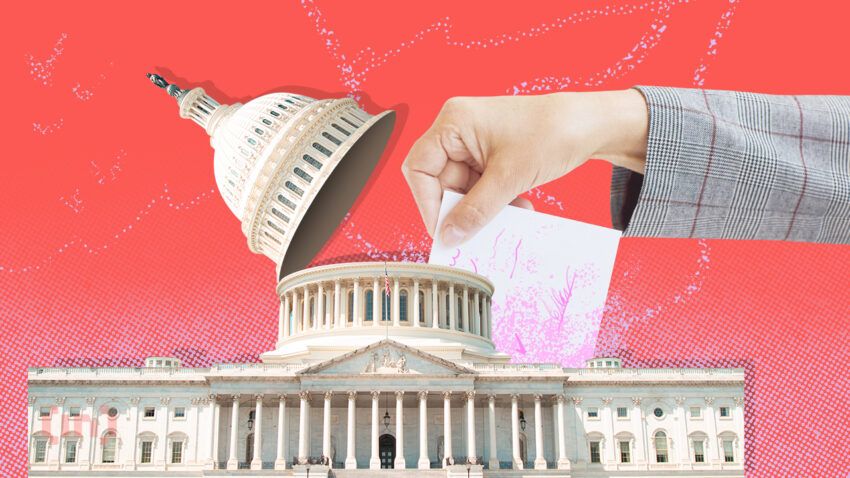House Republicans are renewing efforts to ban central bank digital currencies (CBDCs), broadening the Bill’s scope to encompass “intermediated CBDCs.”
On Tuesday, September 12, House Majority Whip Tom Emmer, R-Minn, presented the Central Bank Digital Currency Anti-Surveillance State Act afresh.
Intermediated CBDCs: A Different Approach
Initially introduced in February, the revised bill now advocates for a prohibition on CBDCs that the public would not interact with, termed “intermediated CBDCs.”
The primary legislation aimed to prevent the Federal Reserve from acting as a retail bank capable of gathering Americans’ personal data. It also dictated that the Federal Reserve liaise with its associated banks concerning CBDC evolution and deliver Congress quarterly updates.
Distinct from standard retail CBDCs, which serve as a public digital currency counterpart, intermediated CBDCs cater primarily to financial entities. Their main purpose is to enhance distribution and transactions, predominantly within the commercial banking sector.
This latest move underscores the Republican party’s resolute stance against CBDCs in any iteration. Nevertheless, with Democrats holding sway over the White House and Senate, any Republican-driven bill faces slim chances of approval.
Ron DeSantis, Florida’s Governor, and entrepreneur Vivek Ramaswamy, two frontrunners vying for the Republican Presidential nomination, have publicly criticized CBDCs.
DeSantis has described them as instruments of “government-sanctioned surveillance.” Meanwhile, Ramaswamy likened CBDCs to China’s social credit system, stating:
“CBDCs are just the latest trojan horse of the Great Reset and are a clear path to a social credit system that will permanently embed ESG into our currency itself.”
Yet, the Atlantic Council reports that 98% of nations are at various stages of CBDC consideration or implementation. Nigeria and China have launched versions for the public. However, Nigeria’s endeavor has received a lukewarm response and limited adoption.
The Controversy Surrounding CBDCs
Over recent years, central bank digital currencies have courted controversy. Critics, including many crypto proponents, are wary of potential privacy invasions and heightened government surveillance.
In regions where digital payments have become the norm, CBDCs are often met with puzzlement. The primary contention remains whether their intent is not for greater governmental oversight or what purpose they serve.
When the European Central Bank’s President suggested a modicum of control over expenditure in a digital euro iteration, it ignited widespread concern. In a prank call with an imposter representing President Zelenskyy of Ukraine, Christine Lagarde implied an uncontrolled digital currency could pose risks.
However, the European Central Bank later revised this stance, asserting that any European CBDC would not be programmable money. Meanwhile, the UK has clarified that there will be no impositions on using its digital pound.
Disclaimer
In adherence to the Trust Project guidelines, BeInCrypto is committed to unbiased, transparent reporting. This news article aims to provide accurate, timely information. However, readers are advised to verify facts independently and consult with a professional before making any decisions based on this content. Please note that our Terms and Conditions, Privacy Policy, and Disclaimers have been updated.


